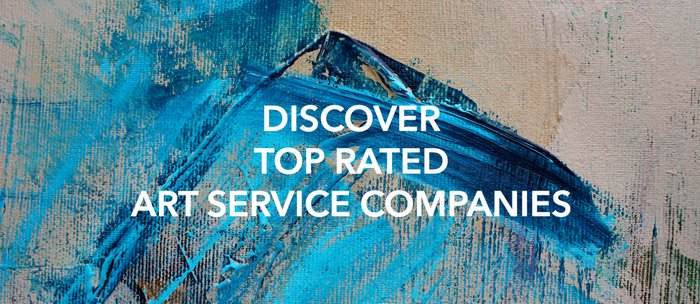- Jobs
- Open Calls
- Events
- Learn
- More
- SUBMIT
THE CLARION LIST, A FIRST FOR THE ART WORLD AND FINALLY A SOLUTION TO A LACK OF TRANSPARENCY IN THE INDUSTRY, FIND OUT MORE FROM FOUNDER JESSICA PAINDIRIS

JESSICA PAINDIRIS
Clarion List
The Clarion List is a really fab idea - having a centralised directory of businesses in the art world enables people to make informed decisions, particularly around purchasing, moving and commissioning art, these can quite often be costly endeavours. What pushed you to move from working for Christie’s into starting your own business?
I started The Clarion List because I wanted solve an age-old problem in the art industry: lack of transparency and access. The Clarion List replaces secretive lists and word-of-mouth referrals with a transparent and easy-to-use database of art service companies that is searchable and sortable, complete with reviews and ratings from the community. This enables collectors, artists, advisors and aspiring collectors to find the resources they need, with reviews from others in the art world to guide their choices.
Our database has over 6,000 listings in the US and Europe across 40 art service categories, including art storage, art framers, art consultants, art conservators, art appraisers, art law firms, forensic analysts, blockchain databases and much more. We plan to grow the database to other major global markets by early 2017.
Why do you think its conception hadn’t occurred previously?
The art market has been around for hundreds of years and word-of-mouth referrals was the only option for most of its existence. Mainstream society’s use of directories with crowd-sourced reviews is a relatively recent trend in light of that long history (Yelp for retail & restaurants, Houzz for interior design, Angie’s List for contractors, etc.). I knew this proven business model could - and would inevitably - be applied to the art world, and I am passionate about being the one to do it.
You and your co-founder offer the public the chance to review industry professionals themselves, do you ever take any of them on full time as reviewers? Also is it ever a worry that reviews might not be authentic?
Anyone who has worked with a listed art service company may write a review, from the perspective of a client or an industry colleague. For example, an art law attorney may write a review about an art appraiser with whom she has often worked. Per our terms of service, all reviews must be authentic or the User will be blocked from future ability to review. We require the reviewer to provide an email address so we may follow up if a company disputes a review as inauthentic. Such a dispute has never happened to date.
Alongside your directory you’re also using a blog on your web platform - what was the thinking behind expanding into the blog-o-sphere?
We believe that there is much need for education about art services. Many collectors and artists, and even art market professionals, can’t tell you what to look for in an expert framer, or why using a professional art transport and installation firm is important versus saving money using a traditional moving company. We try to elucidate the importance of using expert art service providers via our Articles of the Month . And we add curated content from around the web related to art services and collection management. Our goal is for our blog to be a resource to learn how to best care for and preserve art so it may be enjoyed generations to come.

WeWork / Katelyn Perry
How has the use of the blog in conjunction with your site changed the business, do you find it’s enabled you to reach a wider audience?
Content marketing is an important component of many online businesses’ marketing strategies. We strive to provide educational content that is worth sharing to one’s network in the art world. We share the blog content on our social media accounts to our engaged following, as well as sharing in our popular monthly newsletter. As a result, yes we’ve been able to reach a much wider audience.
You guys have also been expanding from the US to the rest of the world - what challenges has this put up? Have you had to adapt the company in any ways for different regions?
In August, we expanded to Europe, which added 50% more listings, bringing our total listings to 6,000 in the US and Europe. We plan to continue to grow globally, including to Asian markets, in early 2017. We have a Google Translate option enabled in our navigation to address any translation issues for our audience.
Even when our database only had US listings, we had international users from Russia, the UK, France and Germany and beyond because the art market is so global. It made sense for collectors, artists and businesses working in or moving to various parts of the world, especially for art fairs, to consult The Clarion List. When a user (or a user's client) needs a service in a new or different market, it's often difficult, or at least inefficient, to find a company. For example, a veteran New York art consultant thanked me for The Clarion List, which helped her source a framer for client who had recently moved to Denver, where she did not have an established network. We hope our expanded, truly global database in 2017 will create a more connected art market. We will be releasing information on our expanded database launch through our monthly e-newsletter.
It shouldn’t really be an issue anymore, but unfortunately we’re still behind the times. Has forming a ‘techy’ arts company as two women, particularly during the early days, created any gender bias obstacles?
Although The Clarion List is a tech platform, I'm serving the art world, which has a huge number of successful women leading the industry. Therefore, I did not feel my gender caused any obstacles directly. I was actually able to benefit by being selected to the inaugural class of the The Circular Board, a wonderful virtual start-up accelerator for women entrepreneurs.

The Clarion List may be searched for free at www.clarionlist.com
INTERVIEW by HANNAH SMITH
|
Los Angeles Academy of Figurative Art
|
NATALIA RAKS
Fine Artist |
Aspex Gallery
Art Gallery |
SIMON BECK
Artist |







